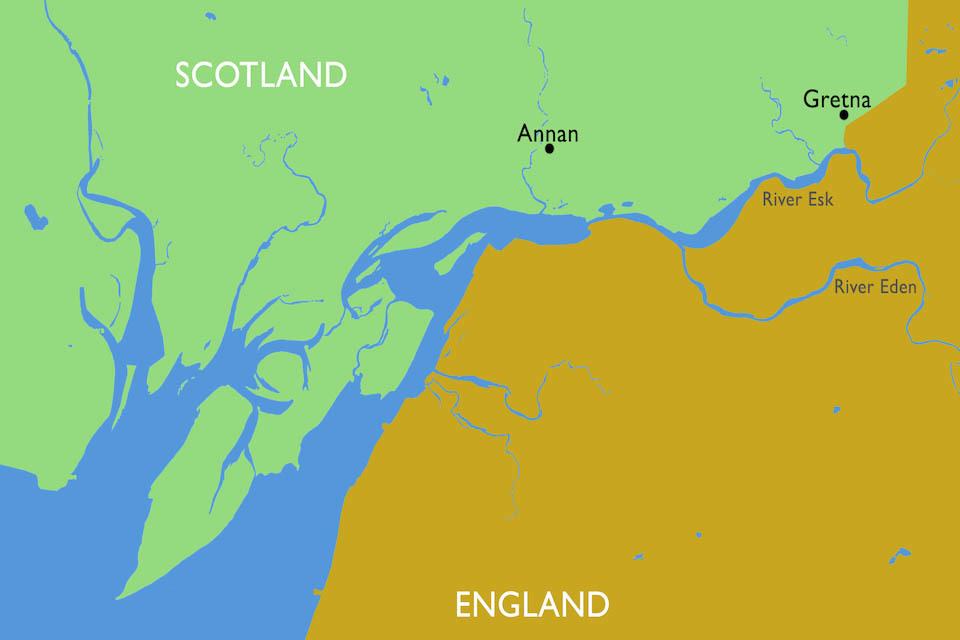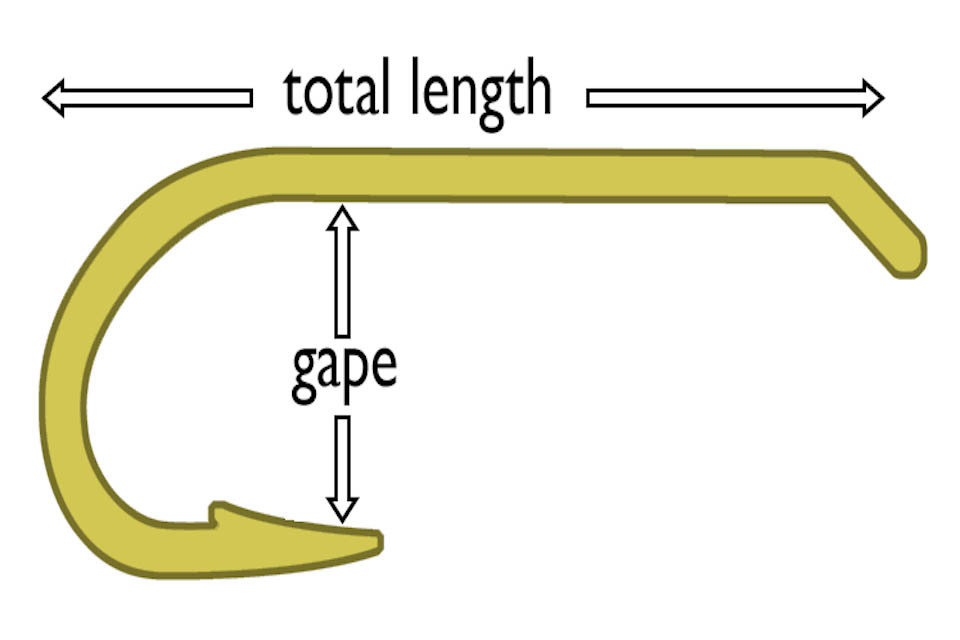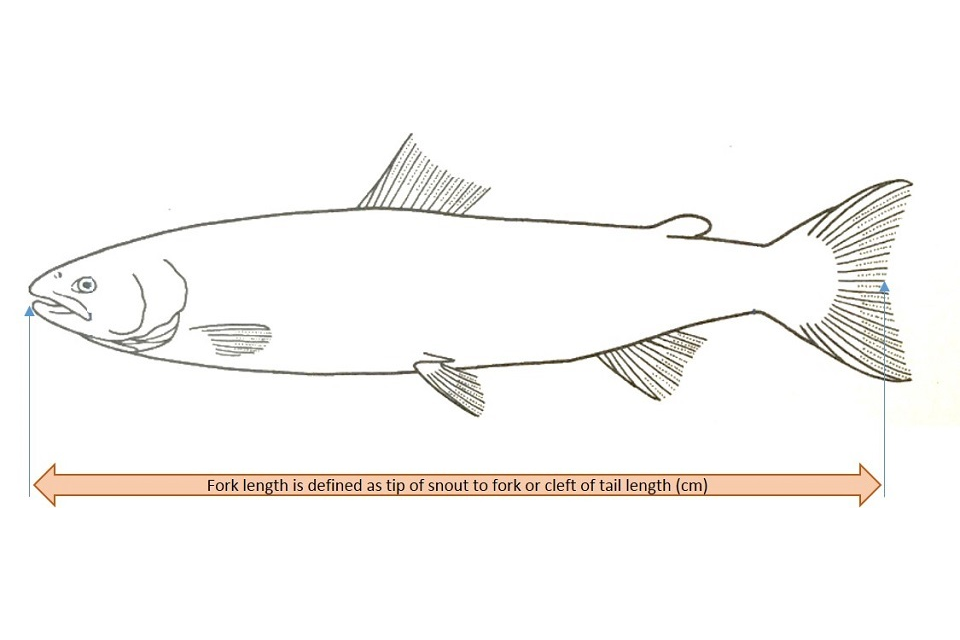Rod fishing byelaws: North West and Border Esk
North West and Border Esk byelaws are statutory rules (regulated by law) and regulations explaining who can fish, where, when and what fish you can take.
Applies to England and Scotland
Overview of North West and Border Esk byelaws
North West and Border Esk byelaws apply to anyone fishing with a rod and line for:
- salmon
- trout
- coarse fish
- eels
- smelt
- lamprey
They apply to all waters within river catchments that flow into the Irish Sea northwards:
- from and including the River Mersey catchment, including the River Weaver and River Gowy catchments
- to and including the Border Esk catchment, including that area of the Border Esk in Scotland
Principal river catchments include the:
- Border Esk
- Calder
- Crake
- Derwent
- Duddon
- Eden
- Ehen
- Ellen
- Esk (Cumbria)
- Irt
- Kent
- Leven
- Lune
- Mersey
- Ribble
- Weanatinalver
- Wyre
See the national rod fishing byelaws for rules that cover the whole country, including the Border Esk in Scotland.
Angling clubs and private fisheries may enforce their own additional rules, but national and local byelaws still apply.
When and where you can fish
These rules apply across the North West and Border Esk, including the area that is in Scotland.
Dates are inclusive
All dates mentioned in these byelaws are inclusive. This means a stated period, such as 15 March to 15 June, includes the full day of 15 March and the full day of 15 June.
Coarse fish
The national coarse fish close season (when you must not fish) from 15 March to 15 June applies to all rivers, streams and drains.
Salmon and migratory trout
The annual close season for salmon is 1 November to 31 January, except on the River Eden (including all tributaries and connected lakes and waters), where it is 15 October to 14 January.
The annual close season for migratory trout is 1 October to 31 March.
Non-migratory and rainbow trout
The annual close season for non-migratory trout (not rainbow trout) in all waters (except fully enclosed stillwaters) is 1 October to 14 March.
The annual close season for rainbow trout in all rivers, streams, drains and canals is 1 October to 14 March.
Char
The annual close season for char is 1 October to 14 March, with the exception of:
- Coniston Water (1 November to 30 April)
- Windermere (1 October to 30 April) except that you can fish for char from a moving boat using artificial lures from 15 March
Fishing near weirs and other obstructions
You are not allowed to fish between 30 September and the start of the salmon close season, within a distance of 20 metres above and 50 metres below the crest of any man-made construction that impounds water (for example, weirs, dams and sluices) in:
- the River Ribble and its tributaries upstream of the Naze at Freckleton (excluding the rivers Darwen, Calder and Douglas)
- all rivers and streams north of the Ribble catchment
You are not allowed to fish at any time of the year within a distance of 20 metres above and 50 metres below the crest of:
- Branthwaite Weir on the River Marron
- Calder Hall Pumphouse Weir on the River Calder, West Cumbria
- Stramongate Weir on the River Kent
- Holmehead Weir on the River Caldew
- Buckabank Weir on the River Caldew
Skerton Weir
You are not allowed to fish on the River Lune between the crest of Skerton Weir (including the fish pass) and the 4 black and white marker posts that create a line across the river between national OS grid references SD48036307, SD48106311, SD48166320 and SD48276320.
You are only allowed to fly fish with a rod and line between the line formed by the 4 black and white marker posts and the line formed by the 3 red and white marker posts placed down river (national OS grid references SD48126292, SD48186298 and SD48256296). This is provided you do not attach a weighted device to the line, cast or hook.
Fish passes
You are not allowed to fish in a fish pass or within a 5 metre radius of the entrance and exit of any fish pass.
River Border Esk

The Upper Esk, commonly known as the ‘Border Esk’ marks the border between England and Scotland. However, the national and North West and Border Esk local byelaws apply to fishing on either bank of the Esk.
See the byelaws for the Border Esk and its tributaries (including the River Sark) in the section ‘Catch limits, size limits and catch returns’. The following local byelaws also apply.
The annual close season for:
- salmon is 1 November to 31 January
- migratory trout is 1 October to 31 March
- non-migratory trout (not including rainbow trout) is 1 October to 14 March
- freshwater fish and eels – national byelaws apply
Fishing for eels
The annual close season for eels in non-tidal parts of rivers, streams and parts of rivers that have been canalised (made into canals) for navigation, is 15 March to 15 June.
There is no close season in tidal waters.
Waters where no fishing is allowed
Fishing is not allowed in some waters in Kendal. These are the River Kent between Victoria Bridge and its confluence with the former Dockray Hall mill race, situated 400 metres upstream of Victoria Bridge in the Borough of Kendal. You are not allowed to fish from the right (west) bank.
This rule does not apply to fly fishing, as long as no weights are attached or incorporated into the line, cast or hook.
Rods and nets
See the national byelaws for the rules on:
- the number of rods you are allowed to use
- using landing nets, keepnets, gaffs or tailers
There is one exception.
You are not allowed to use a keepnet during the statutory close season for coarse fish on rivers, streams, canalised rivers.
This also applies to:
- Bassenthwaite
- Brothers Water
- Buttermere
- Coniston Water
- Crummock Water
- Derwentwater
- Ennerdale Water
- Grasmere
- Loweswater
- Rydal Water
- Ullswater
- Wastwater
- Windermere
Tackle, lures and baits
National byelaws on lead weights apply in the North West and Border Esk.
National byelaws on using tackle, lures and bait apply to North West and Border Esk in addition to local byelaws.
North West and Border Esk byelaws
Here are the local rules on using bait in:
- Bassenthwaite
- Brotherswater
- Buttermere
- Coniston Water
- Crummock Water
- Derwentwater
- Ennerdale Water
- Haweswater
- Loweswater
- Red Tarn
- Thirlmere
- Ullswater
- Wastwater
- Windermere
In these waters you are not allowed to:
- use any dead or live freshwater fish, salmonids or eels as bait
- possess any live freshwater fish, salmonids or eels with the intention of using them as bait, ground bait or loose feed
There are specific rules which apply from 15 March to 15 June in:
- Bassenthwaite
- Brotherswater
- Buttermere
- Coniston Water
- Crummock Water
- Derwentwater
- Ennerdale Water
- Grasmere
- Loweswater
- Rydalwater
- Ullswater
- Wastwater
- Windermere
During this time in these waters you must not:
- fish with maggots, their pupae (or their imitations)
- use the baits specified above as lures or baits not on or attached to a hook
From 15 March to 15 June in rivers, streams and those parts of rivers that have been canalised for navigation:
- you are only allowed to fish for migratory and non-migratory trout with minnow, worm, shrimp, prawn or artificial flies or lures
- you must not use any lure or bait not on or attached to a hook
Using lures
There are some restrictions on the weight of lures, and the size of hooks attached to lures.
After 31 August, when you fish for salmon or migratory trout using lures:
- with double, treble or multiple hooks attached, the gape of each hook should not be more than 8mm and the weight of the lure should be no more than 15g
- with or without a separate weight, the total weight must be no more than 30g
The following rivers are exempt from these rules:
- Annas
- Bleng
- Calder
- Derwent
- Eden
- Ehen
- Ellen
- Esk
- Irt
- Mite
- Waver
- Wampool
Fishing for char in the following waters is also exempt:
- Coniston Water
- Ennerdale Water
- Grasmere
- Rydal Water
- Windermere
Worms and hooks
These are the rules on the number of hooks and hook size when you fish for salmon or trout using worms as bait:
- when you use 1 hook attached to a line, the hook must be no more than 40mm in length with a gape (the distance between the point and the shank) of no more than 15mm
- when you use 2 or 3 hooks attached to a line, hooks must be no more than 15mm in length with a gape of no more than 8mm
- you must not attach more than 3 hooks to a single line
- the total weight of any lead weights used to sink the line must not be more than 30g

Specific rules for the Cumbrian River Derwent
When fishing for salmon and sea trout on the Cumbrian River Derwent, you must only use:
- artificial fly, artificial lure, prawn bait or shrimp bait – you must not use other baits, including worm
- barbless hooks or hooks where the barb has been fully removed or fully crushed (de-barbed)
If you are using a lure, you must only use a single hook which must not be more than 13mm in gape.
You can fish with plug-type lures with up to 3 separate single hooks, but none can be more than 13mm in gape. All hooks must be barbless or de-barbed.
If you are using artificial fly, shrimp bait or prawn bait, you may use multiple hooks. But you must not use more than 4 hook points in total. Single and double hooks must not be more than 13mm in individual hook gape. Treble hooks must not be more than 7mm in individual hook gape. All must be barbless or de-barbed.
Catch limits, size limits and catch returns
National byelaws on catch limits and size limits apply across the North West. There are additional size limit byelaws for:
- migratory trout, which must not be less than 30cm
- brown trout and char, which must not be less than 20cm
There are also separate size limit byelaws on the Border Esk:
- chub must not be less than 25cm
- dace must not be less than 20cm
- grayling must not be less than 23cm
You measure fish from the tip of the snout to the fork of the tail.

Rules for taking salmon and migratory trout – river by river
It is illegal to catch and remove any live or dead salmon from these rivers, their tributaries and estuaries:
- Annas, Cumbria
- Bela, Cumbria
- Calder, Cumbria
- Derwent, Cumbria - also check the section ‘Specific rules for the Cumbrian River Derwent’
- Ellen, Cumbria
- Gilpin, Cumbria
- Keer, Lancashire
- Mersey, Merseyside
- Mite, Cumbria
- Waver, Cumbria
- Weaver, Cheshire
- Winster, Cumbria
You must release all salmon you catch from these waters immediately, with the least possible injury.
The following are rules for specific rivers and their catchments. If fish must be returned to the water, you must do it immediately, with the least injury possible.
River Border Esk
You must not kill any salmon from 1 February to 31 October (the whole season).
You must not kill more than 4 migratory trout from 1 April to 30 September.
You must not kill any female migratory trout from 10 September to 30 September.
River Eden
You must not kill any salmon from 15 January to 14 October (the whole season).
You must not kill more than 2 migratory trout from 1 April to 30 September.
You must not kill any female migratory trout from 10 September to 30 September.
River Leven and Crake
You must fit an Environment Agency carcass tag to any salmon you kill. The number of salmon you may kill in any year is limited by the number of Environment Agency tags provided.
You cannot take any salmon before 16 June.
River Lune
You must not kill any salmon from 1 February to 31 October (the whole season).
River Ribble
You must not kill more than 2 salmon from 16 June to 31 October.
Catch return reporting
If you hold a salmon and migratory trout rod licence you must complete an annual catch return, as outlined in the national byelaws.
Find out how to complete a catch return online.
Updates to this page
-
The 'Catch limits, size limits and catch returns' section has been updated to make it clearer where national byelaws apply and where additional local byelaws apply.
-
Updated 'Tackle, lures and baits' to add a section on 'Specific rules for the Cumbrian River Derwent'.
-
Added to section 'Catch limits, size limits and catch returns': River Lune - you must not kill any salmon from 1 February to 31 October (the whole season).
-
We have clarified what area is covered by the North West and Border Esk byelaws. We have also clarified the local rules for rods and lines and tackle, lures and baits.
-
First published.